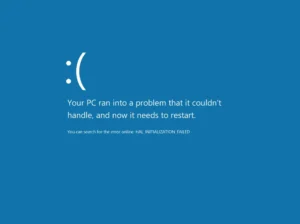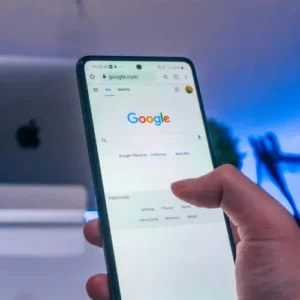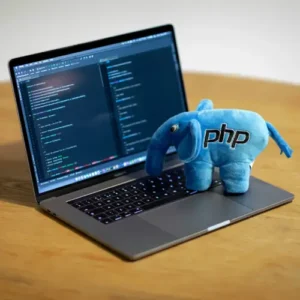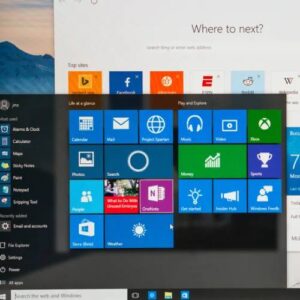The concepts underlying PPC and CPC are not dissimilar. They are two sides of the same coin, and they both contribute significantly to the success of your advertising campaigns.
Acronyms. We don’t like them, but the online marketing industry does.
If you’re unfamiliar with the two acronyms used in the title of this article, you might be perplexed right now.
You might even be perplexed if you know what they mean! After all, the terms PPC and CPC use interchangeably, which causes confusion among new advertisers.
Although the two are similar, there are differences that advertisers must understand to succeed.
As a result, understanding the meaning of PPC (pay-per-click) and CPC (cost-per-click) is critical in digital marketing, as they are necessary tools for growing your business.
Pay-per-click and cost-per-click marketing can help you reach millions of people worldwide in minutes.
The reach is broad, and the return on investment can be substantial (up to $2 for every $1 invested), but if you don’t know what you’re doing, you can quickly lose money.
This post will compare PPC vs. CPC, allowing you to steer your business in the right direction regarding marketing and growth.
What Exactly Is PPC?
Pay-per-click marketing is popular online advertising to increase sales conversions and drive traffic from search engines.
This model places advertisements on third-party websites, social media platforms, search engines, and the like.
Furthermore, you can ensure that your ads show to people who fit your overall customer demographic, increasing your chances of making a sale.
Google is the largest provider of PPC marketing services, generating more than $134 billion in ad revenue.
This figure continues to rise year after year. As a result, when first getting started with PPC, most people turn to Google Ads.
These advertisements can be found by conducting a simple Google search. They can find at the top and bottom of search engine results pages (SERPs).
What Exactly Is CPC?
Rather than being a completely distinct advertising model.
As a result, cost-per-click is a financial metric representing how much you pay for each click in your PPC campaign.
The CPC metric can be applied to a specific keyword or your entire advertising campaign.
What Is the Difference Between PPC and CPC?
Although PPC and CPC are in marketing campaigns, they are different.
PPC is a paid advertising method in which advertisers pay a fee when their ad is clicked on, whereas CPC is a financial metric used to calculate the overall cost of each advertisement click for the campaign.
How Does Pay Per Click Work?
PPC, like its marketing channel, encompasses a wide range of ad platforms.
Google Ads is the most popular platform. Search Ads, Video Ads, Shopping Ads, Gmail Ads, and other formats are available through Google Ads.
Most businesses will begin with Google Ads because it has the most significant audience potential.
The process is essentially the same regardless of platform and ad format.
When a web user conducts a Google search, an auction begins to determine which ads will appear in the SERPs and how much each click for each ad displayed will cost.
A variety of factors influence the auction process.
One factor is the maximum CPC set by the advertising company in their Google Ads account.
This is the maximum amount of money they are willing to pay for each click per keyword/ad group.
How Does CPC Function?
Once your pay-per-click marketing campaign is up and running, you will use cost-per-click to measure and maintain the efficiency and relevancy of your campaign’s advertisements.
After all, you don’t want to continue running ads that aren’t working.
The lower your cost-per-click becomes as more people click on your ad. This is ultimately an indication that your advertising campaign was successful.
Several factors determine the cost per click of your advertisements.
The rank of the advertisement is an essential factor in determining how much you will pay for each click.
In addition to the advertisement’s rank, the keyword’s competitiveness, search volume for the keyword, and click-through rate will be considered.
These factors are used across all platforms, regardless of the type of business or industry in which you operate.
However, each platform will have its own set of standards that it will adhere to. This means that their CPC prices for keywords will differ.
So, while Google may charge $0.50 for each click, Facebook may charge twice as much. Furthermore, the more desirable a keyword is, the higher the cost-per-click for that keyword will be.
Why Should You Use Pay-Per-Click Advertising?
You may be wondering if pay-per-click advertising is suitable for your company.
PPC, like any other form of marketing, has advantages and disadvantages. Ideally, PPC should only be used as part of a more extensive digital marketing campaign, allowing you to maximize its effectiveness.
PPC advertising can provide you with instant results.
When your ads are approved, they will immediately begin to reach your audience, which is highly targeted because you can specify who your target demographic is.
PPC marketing is also simple to track and provides a lot of exposure because the paid ads are prominently displayed to your audience.
When using PPC advertising, remember that it can be costly in the long run because you are paying for each click.
Furthermore, because your success depends on ad spending, you should use PPC to build an asset, such as an e-mail marketing list.










